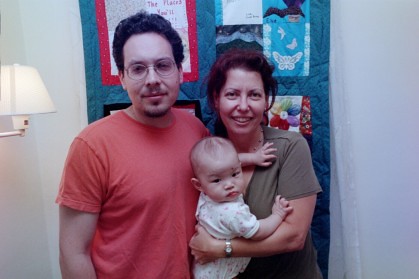🦋 Final ten pages
Well: the end of Elizabeth Costello did not, as I was vaguely hoping, tie things together; if anything it further unravelled them. I'm not sure right now what to think this book is about -- the longing Costello feels for union with the Other, variously expressed as Animal Nature or as Divine Nature; her role as an author in making that union possible for the reader (? -- I just put these words together now -- are they in the story?) How expressing arguments mediates with belief in the principles she is arguing for. Her relationship with colonial history. Her aging, of course. And other tangents... I am dividing the novel into four quite distinct parts: Chapters 1 through 6, about public speaking and argument (the plot of the novel, as far as it can be said to have a plot, is confined to this part); Chapter 7, about union with God; Chapter 8, a fable about justifying one's beliefs; and the afterword (with its epigraph), which seems to be about union with God and insanity. (And just now I noticed that Coetzee calls them not "Chapters" but "Lessons".) Let's look at the ending of each of these sections: Final paragraph of Lesson 6: There ought to be a third alternative, some way of rounding off the morning and giving it shape and meaning: some confrontation leading to some final word. There ought to be an arrangement such that she bumps into someone in the orridor, perhaps Paul West himself; something should pass between them, sudden as lightning, that will illuminate the landscape for her, even if afterwards it returns to its native darkness. But the corridor, it seems, is empty.
Final paragraph of Lesson 7: A vision, an opening up, as the heavens are opened up by a rainbow when the rain stops falling. Does it suffice, for old folk, to have these visions now and again, these rainbows, as a comfort, before the rain starts pelting down again? Must one be too creaky to join the dance before one can see the pattern?
Final paragraph of Lesson 8: The man behind the desk has evidently had enough of questions. He lays down his pen, folds his hands, regards her levelly. 'All the time,' he says. 'We see people like you all the time.'
Final sentences of Afterword: Drowning, we write out of our separate fates. Save us. The afterword is Coetzee writing in the voice of Lord Philip Chandos' wife Elizabeth. (Wheels within wheels: Elizabeth Chandos ~ Elizabeth Costello; Costello wrote a book from the point of view of Leopold Bloom's wife Molly...) Lesson 7 might be the most interesting part of the whole book, with the most to think about. Possibly the final paragraph of Lesson 7 above is meant to represent Costello's death.
posted afternoon of Saturday, February 14th, 2009
➳ More posts about Elizabeth Costello
➳ More posts about J.M. Coetzee
➳ More posts about Readings

Fortunatelly Elizabeth Costello isn't dead yet, as she returns in Coetzee's next book, Slow Man, and this time in a proper -and great- novel.
posted evening of February 14th, 2009 by Jorge López

By the way. Reading your comments on this book made me *really* want to read it again. Too bad I d0n't have it with me right now.
posted evening of February 14th, 2009 by Jorge López

Reading your comments on this book made me *really* want to read it again
Thanks, that's nice to hear. Sounds like I should take a look at Slow Man -- I'm curious though, what Lesson 8 of this novel is doing. It doesn't seem to fit in with the rest of the book. What was your take on this? Does Slow Man occur in the world where Costello is a novelist at the end of her career and a public speaker, or in the world where Costello is appealing to a cryptic panel of judges for passage through a mysterious gate?
posted afternoon of February 15th, 2009 by Jeremy

About Lesson 8 I think I'll give you a proper answer when I read it again, which will be quite soon.
In Slow Man you'll find Costello having trouble with the main character of the novel she's writing, that's as far as I can tell you without spoiling it for you!
posted evening of February 15th, 2009 by Jorge López

I think I'll give you a proper answer when I read it again
Cool, I look forward to it.
posted evening of February 15th, 2009 by Jeremy
|

